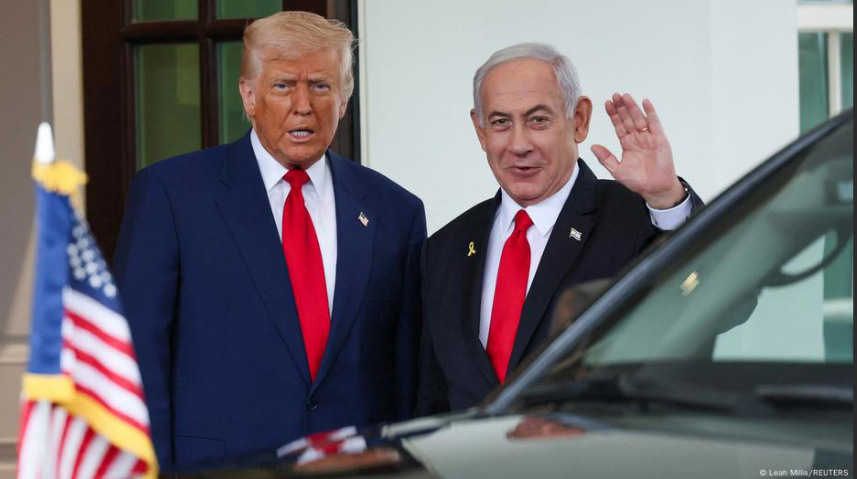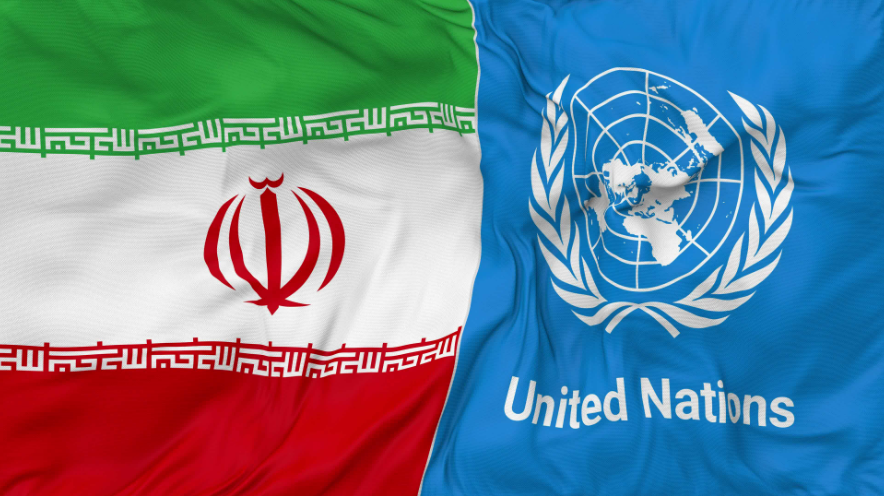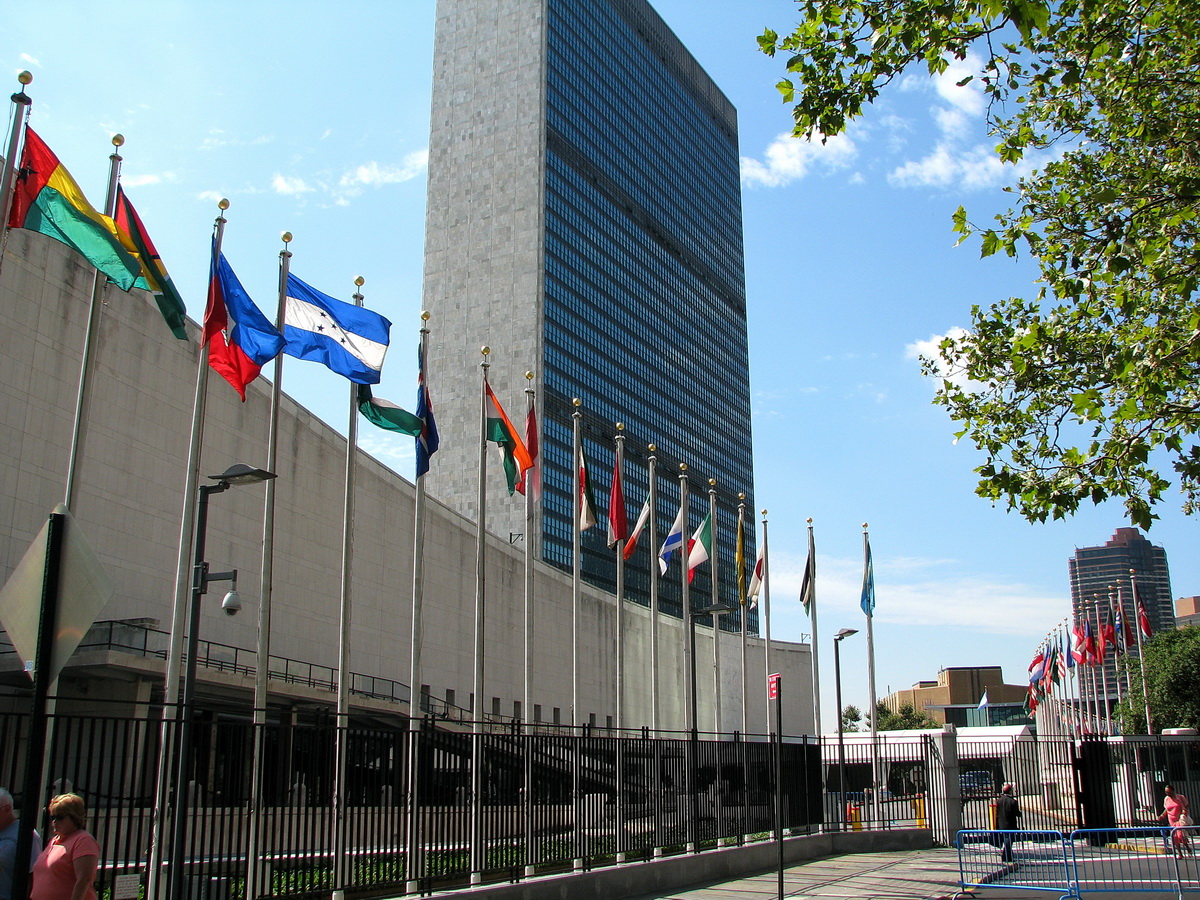By Andrew Tucker, Director thinc.
The United Nations will hold a High-level international conference for the Peaceful Settlement of the Question of Palestine and the Implementation of the Two-State Solution in New York on June 17-20, 2025. Chaired by Saudi Arabia and France, the aim of the Conference is “to help end the occupation and materialize the independent and sovereign State of Palestine.”
This UN-sanctioned State of Palestine is the culmination of a carefully orchestrated campaign over several decades − primarily by the Islamic, Arab and African groups of UN member states, supported by some European and other states − to destroy the Jewish state, and replace it with an Arab/Islamic state “from the river to the sea”.
The UN is demanding that –
- all Jews must be removed from the Old City of Jerusalem − including the Temple Mount − and Judea and Samaria. Jews have lived in this area continuously for thousands of years (except during Jordan’s illegal occupation 1948-1967) and contains many important Jewish and Christian holy sites. In other words, East Jerusalem, and the “West Bank” must be made judenrein;
- the “State of Palestine” will be an Islamic Palestinian state, governed by Sharia law, in which Jews and Christians will have dhimmi (second-class) status;
- Hamas, Palestinian Islamic Jihad and other groups sponsored by Iran and Qatar will likely take control of that state; and
- all Palestinians will have a “right of return” – this means the Jewish state of Israel will be eliminated and replaced by an Arab-majority state.
This France-Saudi push for this Palestinian state is illegal, one-sided, unrealistic, and extremely dangerous. It will lead to anything but “the Peaceful Settlement of the Question of Palestine.”
It undermines the terms of the Oslo Accords, which allow Israel to protect its legitimate security and territorial rights, and are sanctioned by the UN Security Council.
Western states must vigorously resist this call for Israel’s unilateral withdrawal and Palestinian statehood. Instead, they must set out a realistic pathway for the further resolution of the Israeli Palestinian conflict that advances Palestinian autonomy while adequately accounting for the security threats in the region and respecting Israel’s legal rights.
The UNGA Conference on the Two-State Solution
The Conference is being organized to implement the UN General Assembly resolutions adopted in 2024 to compel Israel to unilaterally withdraw its military and civilian presence from the “Occupied Palestinian Territory” (East Jerusalem, Judea and Samaria known as the “West Bank”, and the Gaza Strip) and to facilitate the swift establishment of a Palestinian state on the entirety of that territory − without security guarantees and bypassing the negotiation process.
- Resolution ES-10/24 (September 2024) demands Israel’s unconditional withdrawal from this territory within 12 months of its adoption date. This resolution sought to implement the Advisory Opinion of the International Court of Justice (ICJ) of July 2024.
- Resolution A/79 L/23 (November 2024) calls for a high-level, international conference for the Peaceful Settlement of the Question of Palestine and the Implementation of the Two-State Solution, in New York in June 2025. UNGA Resolution A/79 L/23 specifically calls for:
- The withdrawal of Israel from the Palestinian territory occupied since 1967, including East Jerusalem.
- The realization of the inalienable rights of the Palestinian people, primarily the right to self-determination and the right to their independent State.
- A just resolution of the problem of Palestine refugees in conformity with its Resolution 194 (III) of December 11, 1948.
Why this Conference Undermines International Law and Policy
According to a recent report issued by The Hague Initiative for International Cooperation (thinc.) − a global network of international lawyers who advocate the realistic interpretation and fair application of international law − there are four main legal and policy problems with these resolutions:
First, calls for unilateral Israeli withdrawal from the “occupied Palestinian territory” ignore the massive problem of internationally sponsored, extreme Islamist terrorism in the “West Bank” and Gaza Strip. Iran remains deeply invested in supporting terrorism in the region, including Gaza and the “West Bank.” Qatar’s sponsorship of terrorism in the “Occupied Palestinian Territories” is highly problematic. Syria has introduced a heightened risk of regional instability since the fall of Bashar al-Assad. In Lebanon, Hezbollah remains a major threat to peace and security.
Second, these resolutions ignore the lack of effective Palestinian governance in these territories. Palestinian governance in Gaza is non-existent, and in the “West Bank” remains a critical security risk. The Palestinian Authority (PA) continues to struggle with corruption and inefficiency, and remains committed to terror. Its weakness and inaction were significant factors leading to Hamas’s attack on Israel on October 7, 2023.
Third, these resolutions conflict with Israel’s rights under international law to territorial integrity and political inviolability. Reflecting the biased judicial procedure and reasoning of the recent Advisory Opinion of the ICJ, the resolutions make fundamental errors:
- they fail to properly analyze the territorial sovereignty of these territories;
- they make a fundamental error in concluding that Israel’s presence in the territories is illegal;
- they ignore the binding Oslo Accords between Israel and the PLO;
- they incorrectly define the scope and content of the Palestinian right to self-determination under international law; and
- they fail to properly consider the legal implications of the security threats emanating from the “occupied territory”.
Fourth, they undermine the Oslo Accords which were sanctioned by the Security Council and are still binding. The Accordsrequire all permanent status issues (including settlements, security, borders and Jerusalem) to be negotiated directly between the parties (Israel and the PLO). To bypass negotiations is a breach of international law and the UN’s own requirements.
A new approach is needed – and possible
Instead of ignoring Israel’s rights and blindly implementing Palestinian statehood,UN Member states should –
- Reject calls for an immediate and unconditional Israeli withdrawal from East Jerusalem, the “West Bank,” and the Gaza Strip and the materialization of a Palestinian state on that territory.
- Emphasize the legal obligation of states to neutralize internationally sponsored terrorism and jihadist threats in the region.
- Recognize that international law entitles the State of Israel, subject to the principles of international humanitarian law, to use necessary and proportionate force to eliminate the threat posed by the existence of Hamas and other hostile forces in the territories controlled by Israel since 1967.
- Affirm that the Oslo Accords are still binding andrequire all permanent status issues (including settlements, security, borders and Jerusalem) to be negotiated directly between the parties.
- Affirm that implementation of the Palestinian right to self-determination is conditional upon:
- the cessation of violence and removal of extremist and destabilizing forces of the radical Islamist camp in the “West Bank” and Gaza;
- demilitarization of the “West Bank” and Gaza;
- the reform or replacement of the Palestinian Authority with a stable, effective, and independent Palestinian government;
- dissolution of UNRWA; and
- recognition of Israel’s right to secure borders, and its strong sovereignty rights to the territory of East Jerusalem, the “West Bank” and Gaza Strip by virtue of uti possidetis iuris over the borders established under the British Mandate, as sanctioned by the League of Nations in 1922.
- Recognize that under international law, Israel is entitled and obliged to maintain control of the “West Bank” and Gaza Strip until these conditions have been satisfied.
For further information see: thinc.’s Briefing, Abstract and Executive Summary: http://thinc-israel.org/icj-legal-politicalunga-re-10-24/



